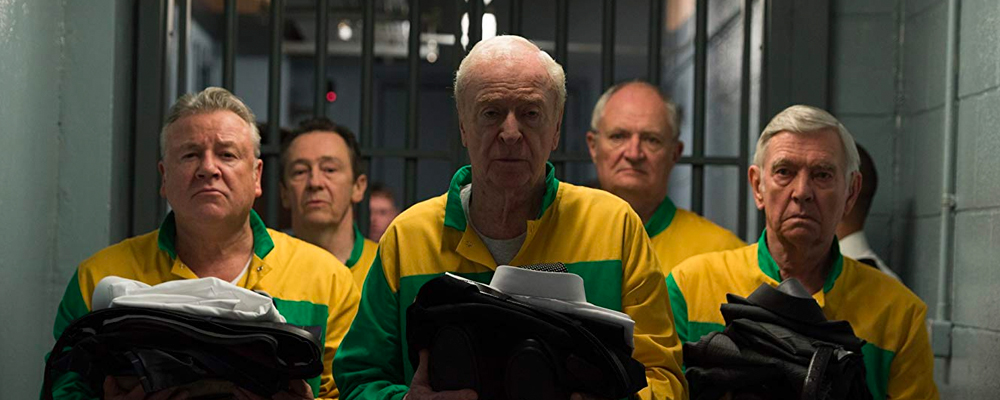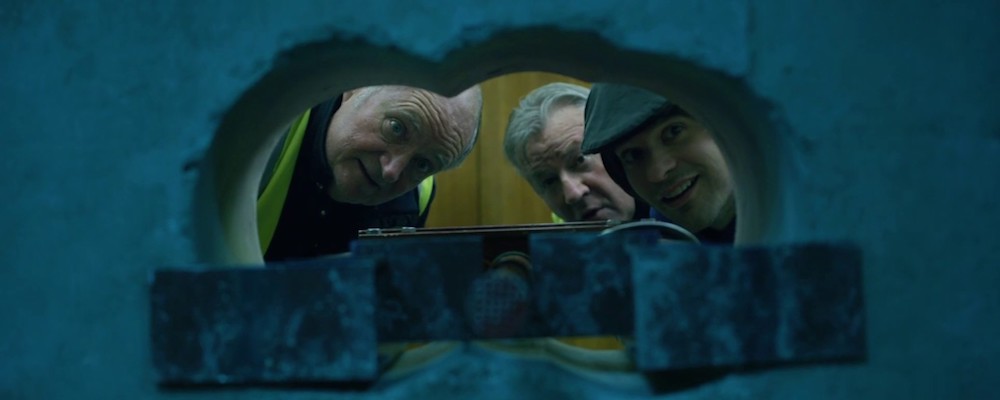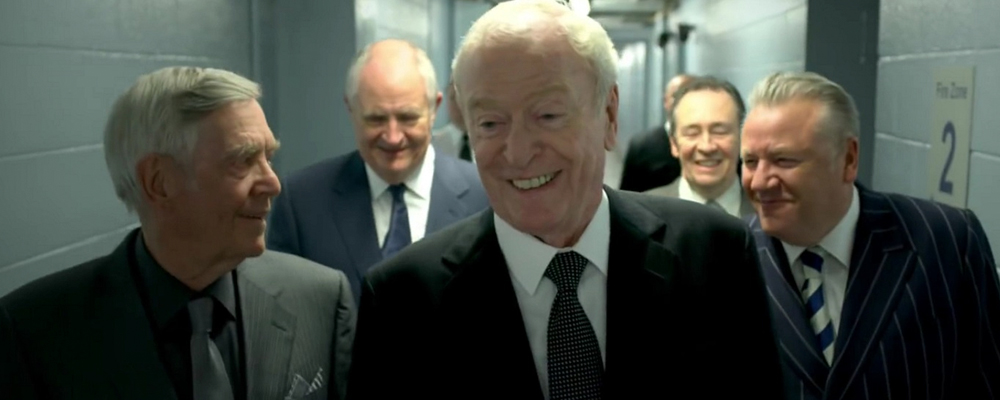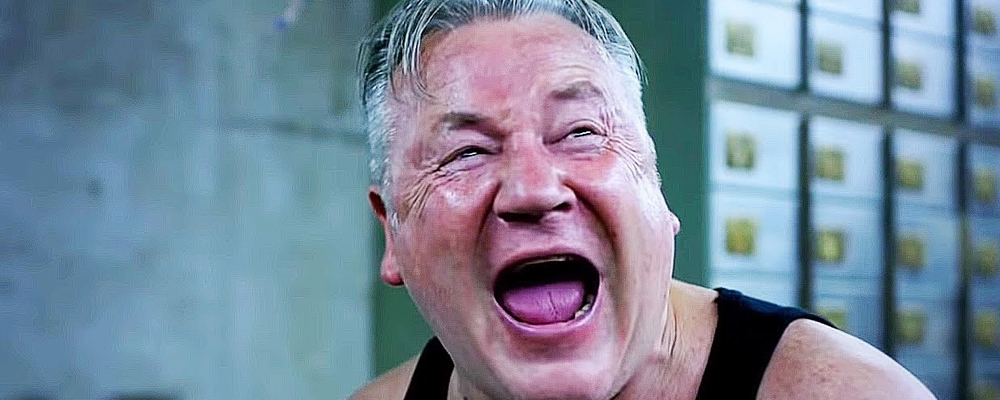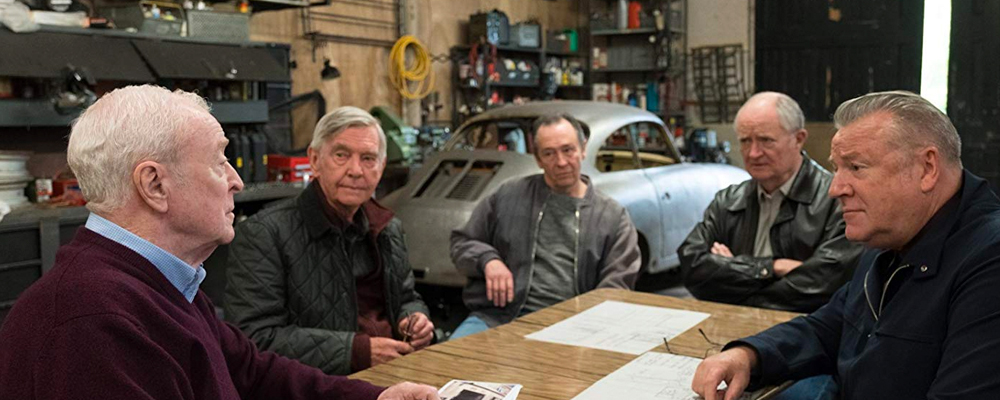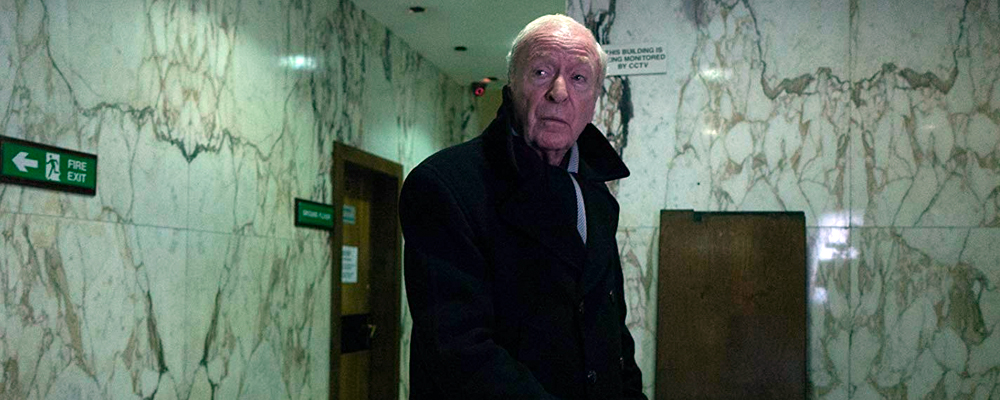James Marsh on Directing Legendary British Actors to Rob Banks in ‘King of Thieves’
Michael Amundsen
It was 2015 when half a dozen British career criminals in their 70’s came out of retirement for one last heist. They got away with upwards of £200 million, but were arrested soon afterwards and sent to prison.
Director James Marsh has turned the Hatton Garden burglary and their almost banal misadventures into a comedy of errors called “King of Thieves.” It stars, among others, Michael Caine, Michael Gambon, Ray Winstone, Jim Broadbent and Tom Courtenay. Marsh is no stranger to movies based on true stories. His cinematic exploration into the mind of Stephen Hawking in “The Theory of Everything” received Oscar and Golden Globe awards. With “Man on Wire,” Marsh documented Philippe Petit’s illegal tightrope walk between the twin towers. It is his sensitivity to those ironies in the lives of others that made him a perfect choice to direct “King of Thieves.” Entertainment Voice caught up with him where he shared his insight into directing some of England’s legendary actors.
Watching the film, one gets the sense that these actors were given permission to be old.
You have an old fashioned crime. You have geriatric criminals. Some of them retired. All of them have infirmities. And you look around for older actors and you ask if they’d like to do it and they all say yes. Of course we said they had permission to be themselves. That appealed to them for sure. Michael (Caine) is 85. Tom (Courtenay) is 83. Michael Gambon is 77. It was never about their vanity. And that was what was so refreshing about this film.
Directing them was daunting going into it. All these blokes were older and wiser than me. So I decided that the first scene we’d shoot was the changing scene at the end of the film. They all get out of their prison clothes and strip down to their underpants. Every character is in that scene. They have banter that is very comic but very poignant too, deriving partly because they are all in their underwear.
I was able to rehearse that scene the week before. The night before we shot it, I was really scared, tormented by the fact that I may be found out by all these old guys who had so much more experience than me. But it was a very harmonious collaboration from start to finish. They all came with this great attitude.
So it was a joy and privilege for me, like a child almost. I had grown up with their work. And I was influenced by their work. And to have them all together and amusing each other, it was sort of fun. Really, they’d go off on one another in a way that was kind of funny and not nasty and they loved it. I missed it when it was over.
Was there much improvisation?
You can only improvise when you have a really good script to start with. When things are in place; and the intentions are clear. Then you can improvise. And they all did it once they had permission.
For example, there is a scene between Michael Caine and Tom Courtenay in the second half of the movie. Michael is laying in wait in the kitchen and Tom blunders in drunk. That entire scene was improvised on the day we shot it. The actors tried something different, and we’d hang onto it and do it again, and it got better. And that happened almost every day. They would add a line here or an insult. It was a great addition to the energy of the film and how the film was going to feel.
Did you use multiple cameras?
We did. I decided early that we shouldn’t glamorize their world. It was a shabby little world these people lived in. Depressing. The idea was to be true to that and not make it like “Ocean’s 11” or something like that. We wanted to make something honest and true like a documentary.
We often shot with 2 cameras and stage the scene in a loose kind of way. Danny Cohen, our cinematographer, and his team were tasked to find a way to capture that. The actors enjoyed the freedom of that approach where they weren’t told to hit this mark and say these words here. I would say I’d like you to go roughly here and roughly there. Other than that I don’t care. They liked that freedom.
Jim Broadbent showed an acting side of him we don’t often see. He was scary.
That was all true to the character he played. In Britain, Broadbent is known as this kindly uncle. He loved playing this small-minded sadist who did indeed set fire to people in a bank heist. Jim loved to do this. I loved working with Jim.
The music had a strong period feel. How did that come about?
Ben Wallfisch, the composer, looked at movies like “The Ipcress File” which starred Michael Caine. It was that kind of modern jazz with some 21st century. That was our thinking: retro but contemporary.
I had this idea to film the heist to “Sugar Plum Fairy.” I kept it classical. But Ben said I’ll have a go at something different. He came back with this raucous jazzy jazz version.
Near the end of the film, there is a montage of shots showing your lead actors going to trial. It is intercut with clips of Caine and the others in movies at the start of their careers. Is this as a tribute?
I intended it as a tender and loving tribute to these actors I had grown up with, whose careers I had followed, whose acting I had always enjoyed. And a tribute to what they were. These are the younger, vigorous, virile versions of their older selves. It was a personal thing to do. We were all young once.
“King of Thieves” opens Jan. 25 in select theaters.

